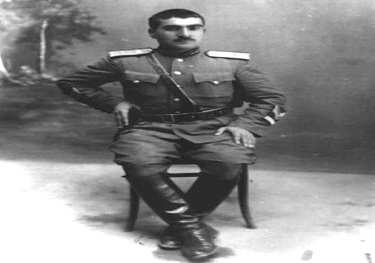Mustafa Barzani was born in Barzan, a village in Iraqi Kurdistan (then the Ottoman Empire) in 1903. Barzani was appointed Minister of Defense for the Kurdish Mahabad Republic (in northwestern Iran) and never surrender or defected to Iranian forces. In August 1946, when Barzani was still in exile, he was elected president of what would become the Kurdistan Democratic (KDP) of the Kurdistan region in Iraq. After his return to Kurdistan in 1958, Barzani was involved in many struggles for independence against several Iraqi regimes including Saddam Hussein’s dictatorship. Barzani always attempted to gain independence or autonomy for the Kurdistan region. In 1970, KDP negotiations with Saddam Hussein resulted in a peace accord that granted formal recognition of the Kurds as a people, made Kurdish an official language of Iraq, and granted the Kurdistan region (without Kirkuk) autonomy for the first time. Barzani survived several assassination attempts, purportedly by Saddam. Barzani rebuilt the Peshmerga, expecting further conflicts with Baghdad, and when presented with another autonomy agreement, he declined it because it did not include Kirkuk Province. The 1975 Algiers agreement between Iraq and Iran ended Iranian support of the Kurdish revolution, effectively ending Barzani’s rebellion. Barzani and his followers ended the insurrection and moved to Iran where he continued trying to get support from the United States. He died of lung cancer in 1979 in Washington, D.C., where he was getting treatment. He was buried first in Iran, before his body was transferred to its final resting place in his hometown of Barzan, Kurdistan. Barzani is considered an influential leader for the independence movement. Most of the Kurds describe Barzani as a father figure throughout Kurdistan.
Mustafa Barzani
4K

